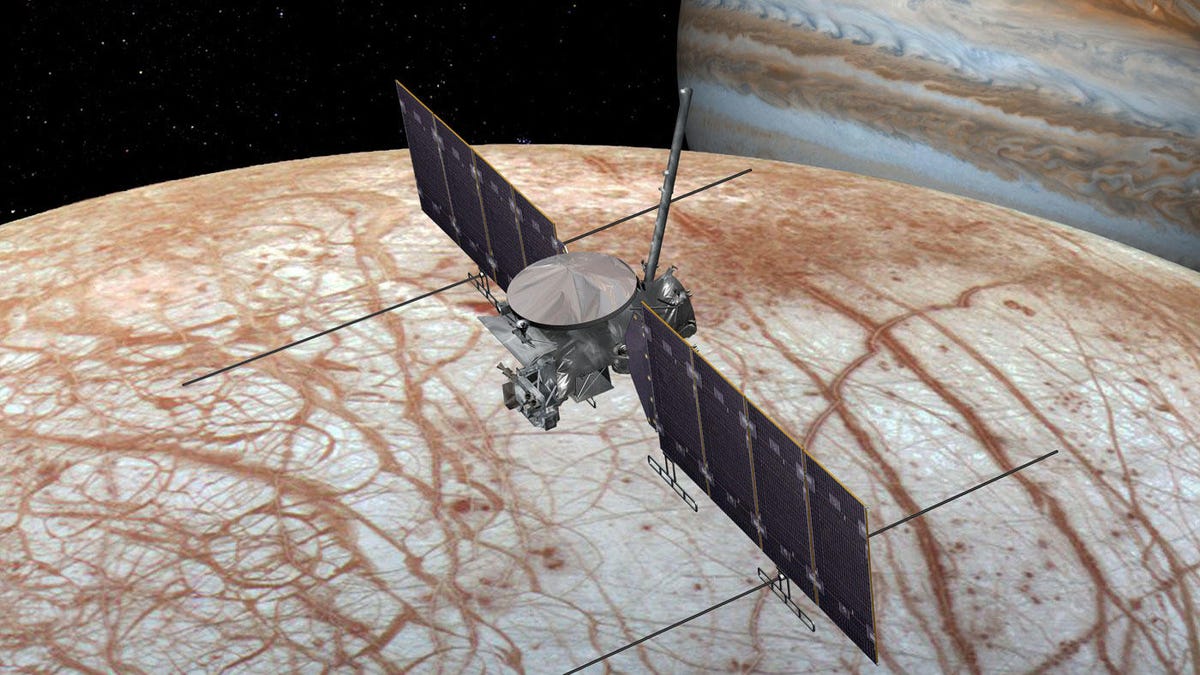NASA taps SpaceX Falcon Heavy rocket to launch Jupiter moon mission
Europa Clipper will investigate an icy world with a hidden ocean that might be favorable for life.

This NASA illustration shows the Europa Clipper at the moon with Jupiter in the background.
Jupiter's unusual icy moon Europa may be one of the best spots in the solar system to check for signs of alien life. But first we have to get there. NASA's Europa Clipper spacecraft will get a boost in the right direction from a SpaceX Falcon Heavy, one of the most powerful rockets ever built.
NASA announced Friday that it has selected SpaceX to provide the launch services for the Jupiter moon mission. The launch is scheduled for October 2024 from the Kennedy Space Center in Florida. The contract is worth about $178 million (£129 million, AU$241 million).
Europa Clipper will try to determine if the moon could possibly host life. "Key mission objectives are to produce high-resolution images of Europa's surface, determine its composition, look for signs of recent or ongoing geological activity, measure the thickness of the moon's icy shell, search for subsurface lakes, and determine the depth and salinity of Europa's ocean," said NASA.
SpaceX has been working with NASA on many fronts, including carrying astronauts to and from the International Space Station, delivering cargo to the ISS and developing a human landing system to return astronauts to the moon through the Artemis program.
NASA's Space Launch System -- which is designed for its Artemis moon missions -- had been tied to the Europa Clipper launch, but last year the space agency opened up to the possibility of using a commercial provider instead. That has now come true as SpaceX's big rocket will take the honors of kicking off the fascinating mission.
Follow CNET's 2021 Space Calendar to stay up to date with all the latest space news this year. You can even add it to your own Google Calendar.

